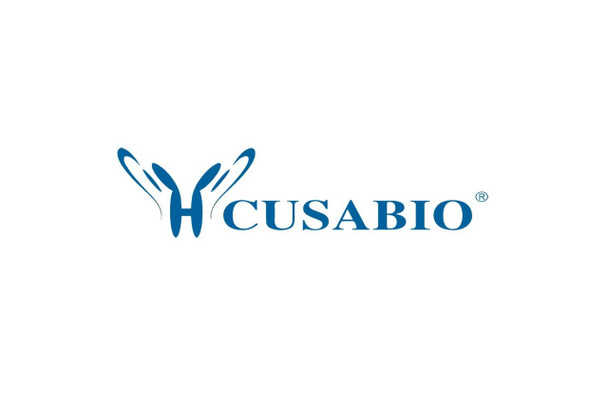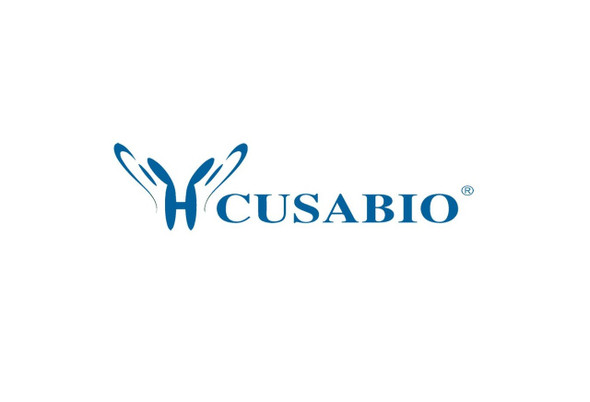Cusabio Human Recombinants
Recombinant Human Cyclin-dependent kinase 5 activator 1 (CDK5R1), partial | CSB-EP624014HU1
- SKU:
- CSB-EP624014HU1
- Availability:
- 3 - 7 Working Days
Description
Recombinant Human Cyclin-dependent kinase 5 activator 1 (CDK5R1), partial | CSB-EP624014HU1 | Cusabio
Alternative Name(s): Cyclin-dependent kinase 5 activator 1(CDK5 activator 1)(Cyclin-dependent kinase 5 regulatory subunit 1)(TPKII regulatory subunit) [Cleaved into: Cyclin-dependent kinase 5 activator 1, p35(p35); Cyclin-dependent kinase 5 activator 1, p25(p25)(Tau protein kinase II 23 kDa subunit)(p23)]
Gene Names: CDK5R1
Research Areas: Cell Biology
Organism: Homo sapiens (Human)
AA Sequence: AQPPPAQPPAPPASQLSGSQTGGSSSVKKAPHPAVTSAGTPKRVIVQASTSELLRCLGEFLCRRCYRLKHLSPTDPVLWLRSVDRSLLLQGWQDQGFITPANVVFLYMLCRDVISSEVGSDHELQAVLLTCLYLSYSYMGNEISYPLKPFLVESCKEAFWDRCLSVINLMSSKMLQINADPHYFTQVFSDLKNESGQEDKKRLLLGLDR
Source: E.coli
Tag Info: N-terminal 6xHis-tagged
Expression Region: 99-307aa
Sequence Info: Partial
MW: 27.3 kDa
Purity: Greater than 85% as determined by SDS-PAGE.
Relevance: p35 is a neuron specific activator of CDK5. The complex p35/CDK5 is required for neurite outgrowth and cortical lamination. Involved in dendritic spine morphogenesis by mediating the EFNA1-EPHA4 signaling. Activator of TPKII. The complex p35/CDK5 participates in the regulation of the circadian clock by modulating the function of CLOCK protein: phosphorylates CLOCK at 'Thr-451' and 'Thr-461' and regulates the transcriptional activity of the CLOCK-ARNTL/BMAL1 heterodimer in association with altered stability and subcellular distribution.
Reference: "Cyclin-dependent kinase 5 (Cdk5) regulates the function of CLOCK protein by direct phosphorylation." Kwak Y., Jeong J., Lee S., Park Y.U., Lee S.A., Han D.H., Kim J.H., Ohshima T., Mikoshiba K., Suh Y.H., Cho S., Park S.K. J. Biol. Chem. 288:36878-36889(2013)
Storage: The shelf life is related to many factors, storage state, buffer ingredients, storage temperature and the stability of the protein itself. Generally, the shelf life of liquid form is 6 months at -20?/-80?. The shelf life of lyophilized form is 12 months at -20?/-80?.
Notes: Repeated freezing and thawing is not recommended. Store working aliquots at 4? for up to one week.
Function:
Involvement in disease:
Subcellular Location:
Protein Families:
Tissue Specificity:
Paythway:
Form: Liquid or Lyophilized powder
Buffer: If the delivery form is liquid, the default storage buffer is Tris/PBS-based buffer, 5%-50% glycerol. If the delivery form is lyophilized powder, the buffer before lyophilization is Tris/PBS-based buffer, 6% Trehalose, pH 8.0.
Reconstitution: We recommend that this vial be briefly centrifuged prior to opening to bring the contents to the bottom. Please reconstitute protein in deionized sterile water to a concentration of 0.1-1.0 mg/mL.We recommend to add 5-50% of glycerol (final concentration) and aliquot for long-term storage at -20?/-80?. Our default final concentration of glycerol is 50%. Customers could use it as reference.
Uniprot ID: Q15078
HGNC Database Link: N/A
UniGene Database Link: N/A
KEGG Database Link: N/A
STRING Database Link: N/A
OMIM Database Link: N/A






